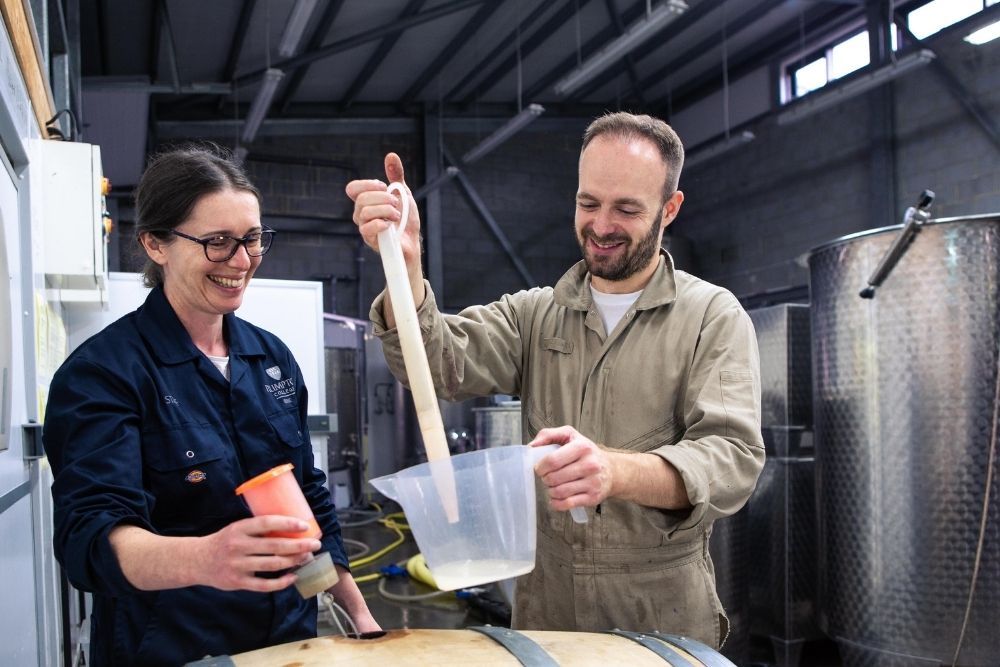“The message from the team at Plumpton College is clear; if you’ve got ideas you need researching, then they’re open to talk,” writes Turner.
A couple of weeks ago I joined a webinar to listen to the new crop of bright young things in the wine trade present their theses. Unlike in my own time of listening to fellow Finance Masters’ students present their thoughts on yield curves and the amazing money-making potential of CDOs (anyone with a vague knowledge of the Credit Crunch will understand the irony there), this group of 10 students had my inner wine geek on the edge of my seat. Their projects were a beautiful mix of intrigue from UK-specific clonal research to COVID-specific market research, and to wonderfully quirky historical dives into winemaking techniques of ancient Rome and what we can learn from them.
The webinar was set up to showcase and promote the research of those specific students and the growing prowess of Plumpton College as a serious tool for the UK wine trade. The courses on show were their BSc Wine Production, BA International Wine Business, and their MSc in Viticulture and Oenology.
The three courses and the research projects they can produce, when combined, have the potential to cover off pretty much any topic in the world of wine. This was something that, on a follow up call, the course leaders were keen that the wider wine trade acknowledges and uses to their benefit.
The right place for the right time
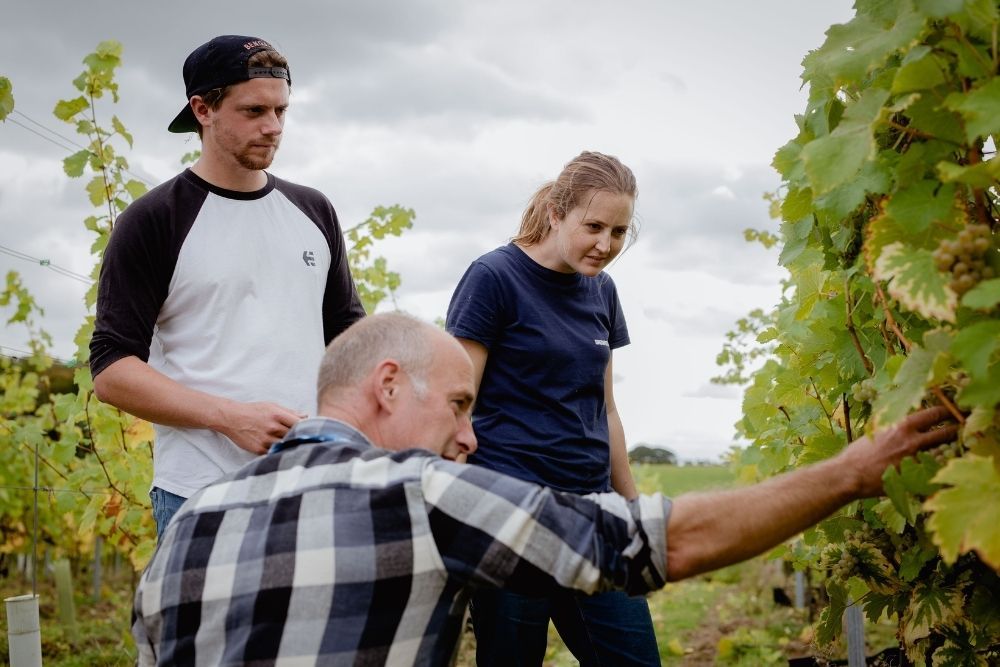
Plumpton College is a further education college based in an idyllic spot near Plumpton in East Sussex. It’s able to offer degree courses in association with the Royal Agricultural College in Cirencester, arguably one of the finest centres of agricultural learning in the world. The courses on offer at Plumpton cover a wonderfully eclectic spectrum, from Floristry to Metalsmithing.
It’s in the fields of Viticulture and Oenology, however, that the College has grown into national and international renown in conjunction with the meteoric rise of English and Welsh wine production in the past two decades.
Those of you who have had the joy of studying the Oxford Companion to Wine for your wine exams will remember that a turning point in most wine regions in the world is the point that they set up their own research station. The famous examples of Geisenheim in Rheingau or UC Davis in California have provided a vital tool for the grape growers and winemakers in the immediate surrounding area and eventually the rest of the world.
Plumpton’s position in East Sussex places it in a hot bed for the English wine industry. They’re surrounded by some of the most exciting and progressive wine producers and businesses around, including the likes of Rathfinney, Bolney and Ridgeview. They’re also only a short distance from London, the epicentre of wine business trading in Europe. All will increasingly benefit from having a world class research centre on their doorstep.
Rude health following the pandemic
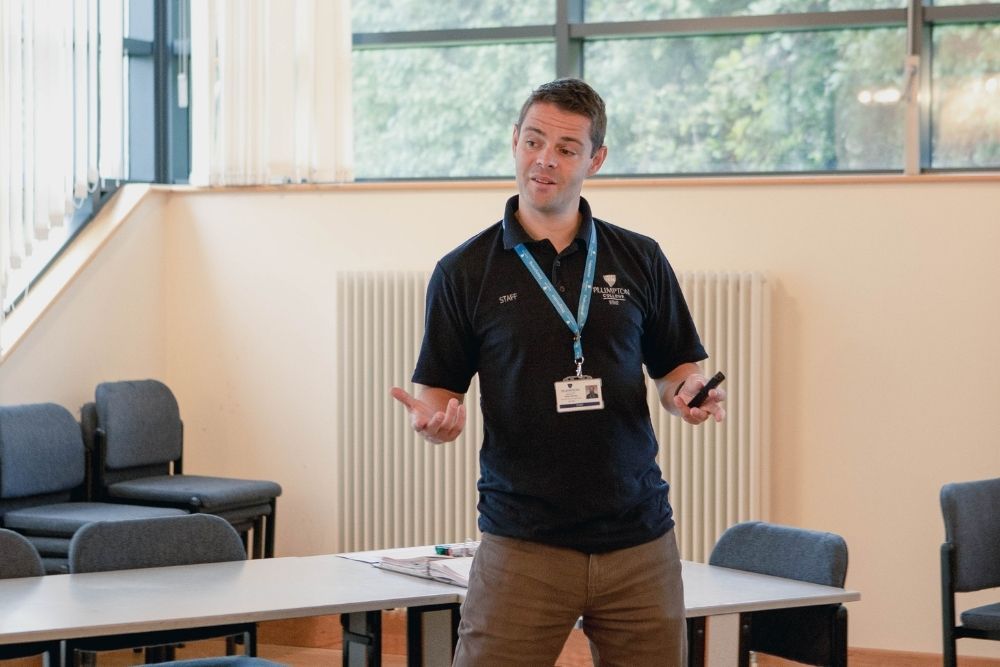
I was lucky enough to have 30 minutes on a Zoom with the course leaders a couple of days after the webinar to pose a few questions of my own. My first was to ask about the impact COVID had on their student numbers, something many further education colleges are struggling with across the country.
This was fielded by the head of department, Dr Greg Dunn, an Australian that clearly tired of good cricket and sunshine and decided to move to the UK to head up the Viticulture and Oenology operations of Plumpton. “Our student numbers are very healthy considering what’s happening. Of course, many students, most of all the many international students we’re attracting, have deferred until travel options get easier, but overall we’re pretty solid.”
What attracts the students to Plumpton?
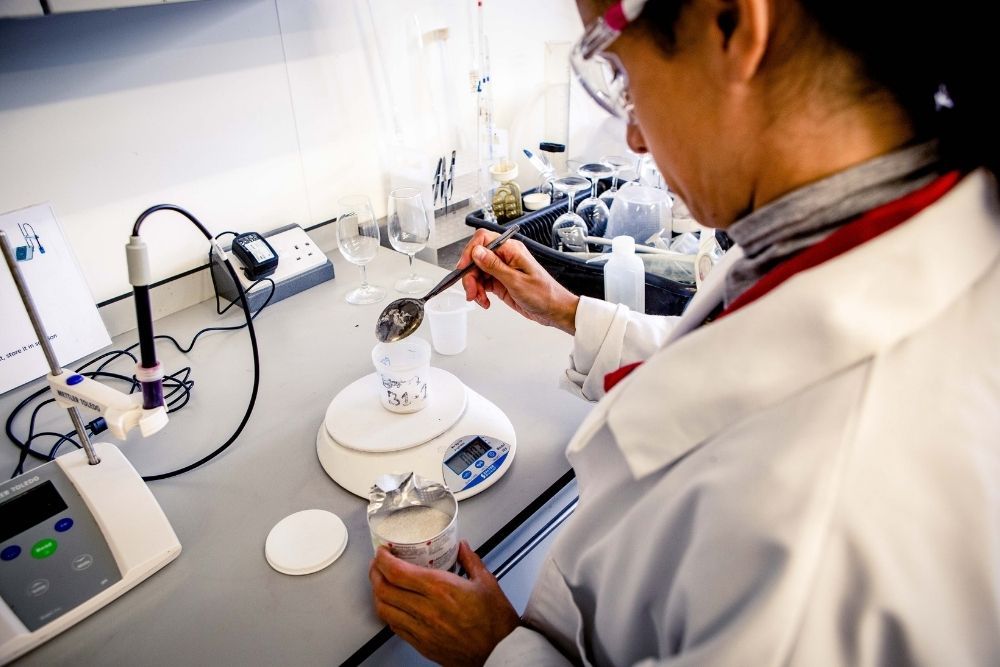
Paul Harley runs the BA in International Wine Business. He joined Plumpton in 2007 as the sales manager for the wines produced by the students, but by 2010 he had joined the education team and his current role as program manager allows him to research his passions of wine tourism and the various avenues of consumer behaviour. He believes that the course he runs offers a unique entry point into the wine trade.
“We align our courses and the students’ research topics to their career aspirations, whether that’s retail, as buyers, or even journalists. They leave Plumpton as experts that companies want, and often need, to hire.”
In terms of the kind of students that start courses at Plumpton, there is a large range. Dr Heber Rodrigues heads up the MSc in Viticulture and Oenology. Originally from Brazil, he holds a PhD from the University of Bourgogne and looks to delve into consumer psychology, our degrees of sensory perception, and the widely accepted but less well understood concept of minerality in wine. On his MSc programme, for example, he sees a great range of ages and backgrounds.
“Many of my students are career changers in their 40s and 50s, although we did recently have an application from someone in their late 70s. The huge range of backgrounds and experiences the students bring means a fabulous mix of knowledge and ways to approach the different research projects.”
Who picks the research project?
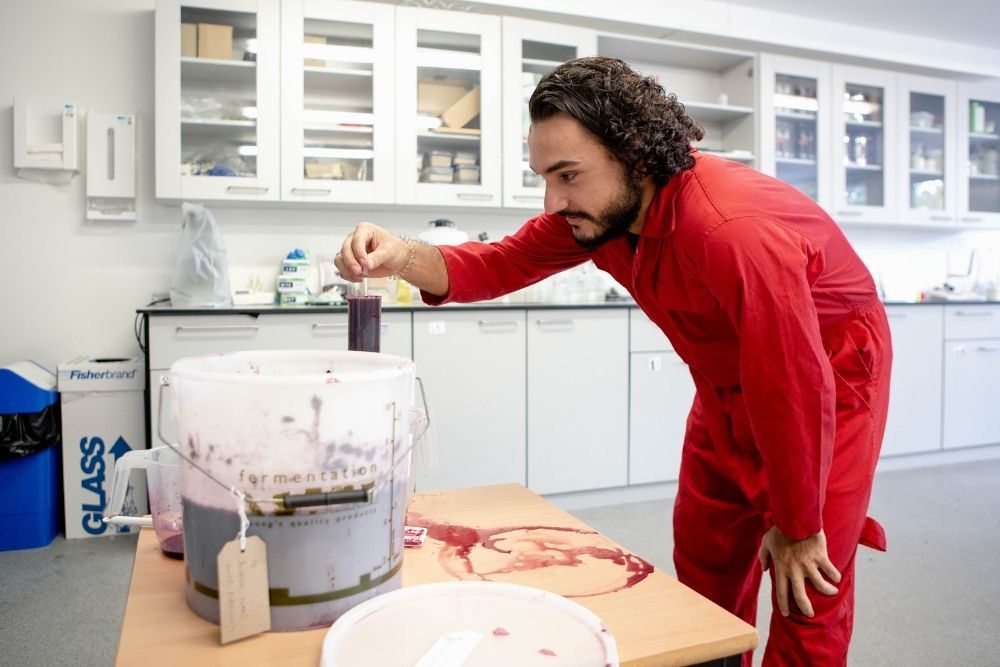
Dr Akshay Baboo heads up the BSc in Wine Production, arriving in East Sussex following a variety of consultancy roles across the burgeoning wine production scenes in India and China. He obtained his PhD from Torino University researching rootstock selections. He points to a UK slant to research topics.
“Being based in the UK means we’re perfectly placed to research cool climate issues. We’ve seen topics from fungal-resistant grape varieties to the genetics of disease resistance and how plants can signal to each other in times of crisis. We look at the chemistry from the start but can often skew the discussion to be relevant to UK wine production.”
Dr Rodrigues points to contemporary research projects in the field of the psychology of wine consumers.
“Contemporary subjects, such as the transgendering of wine consumption, are placed alongside timeless topics such as perceptions of two given tastes. A topic I enjoyed recently saw a student research the way beer, wine, and cocktails were marketed, reviewed, and discussed across social media platforms across different English-speaking countries in the world.”
The latter is definitely a research paper we could all do with reading given the millions of marketing dollars currently being pumped into social media campaigns across the global industry.
Harley notes that one of the main roles as program managers is to help students follow their topic whilst working around the limitations of the industry.
“Our biggest issue is with those contemporary subjects. It’s not so much the research itself. It’s more the literary review, which is a vital opening point of any research to build the hypotheses. There’s simply a lack of literature to research. But I really encourage people to be innovative and contemporary in the Wine Business programme. In 2015 we had a student looking into the future of Blockchain technology (an open-sourced digital supply chain footprint) in the wine trade. Since 2016 we’ve had Brexit and COVID, so it’s moving fast.”
How can the trade and Plumpton work better together?
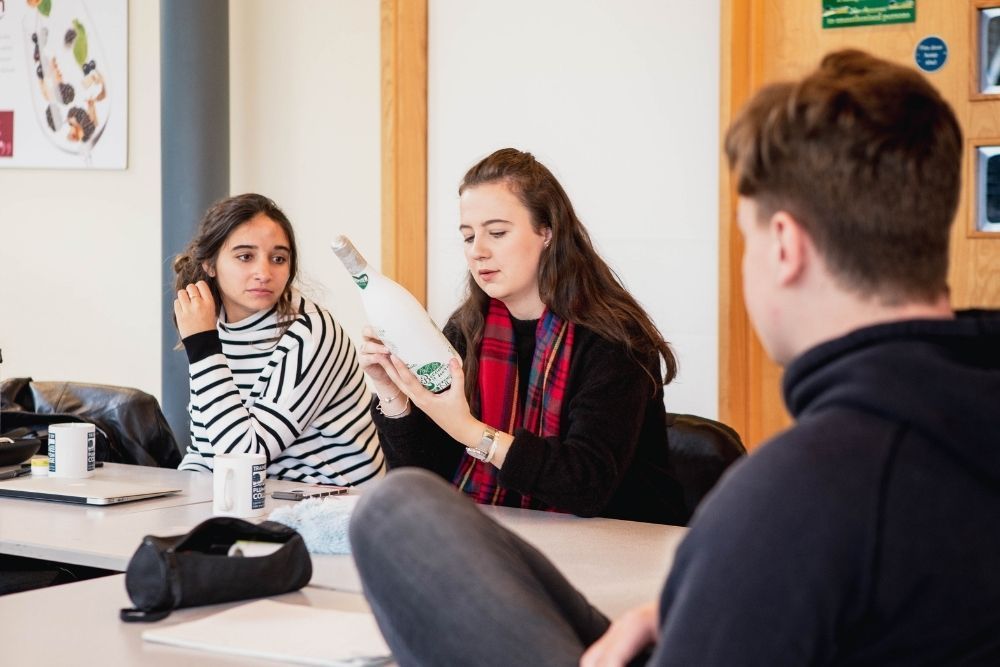
“The project is, of course, a big part of their CV on completing their course,” states Dr Dunn. “Of course, we want the students to be comfortable with the topic, but we need interaction with the industry to make the projects relevant. From both a funding and a project co-ordination point of view, industry input is vital. For example, we want our BSc Wine Production students out in commercial vineyards, learning the job in a business setting.”
The college boasts a semi-commercial 7.3 hectare vineyard in Scaynes Hill, with a new vineyard in Ditchling planted 3 years ago. This gives the students access to put their theories into practice, producing actual wine that actual people actually drink! Under the watchful gaze of professional vineyard managers and winemakers and paired with the well-stocked laboratory to track and analyse the progress of their projects, the students of Plumpton can build on each other’s projects year on year.
“We’d like to focus on certain subjects that are relevant to wine businesses in the UK and further afield,” continues Dr Dunn. “What are the basic challenges? Can we help to build out the picture? Wine GB is currently working on exactly such a list of priorities of research and we’re very much looking forward to being a part of that.”
Funding is always an ongoing issue in both undergraduate and postgraduate research projects. But before there’s too much eye rolling from those that control the purse strings in the trade, it’s important to understand the opportunities available.
“The UK needs viticulture projects to expand the knowledge of the fledgling industry,” states Dr Baboo. “From a wine production angle, we can help to formalise those methods of production on behalf of companies that may not have the time or the facilities to run that research.”
Not only that, but the skill-sets students learn during their research projects are vital to their future in the trade. “UK wine production is small, and it’s tough with both the money and the expertise at present,” highlights Dr Dunn. “What we need is people in the UK that can interpret research from elsewhere in the world and put it into practice in our vineyards. The international placements we offer to countries such as New Zealand, South Africa, and Sweden to name but a few, are hugely beneficial.”
The diversity of subjects on offer to students at Plumpton is something Dr Rodrigues points to as a strong attraction to the trade.
“Plumpton is almost unique in the diversity of the research we offer. From the wine business, to genetics, to microbiology, and to sensory perceptions of consumers. That diversity is a selling point to both students and the trade.”
Get in touch
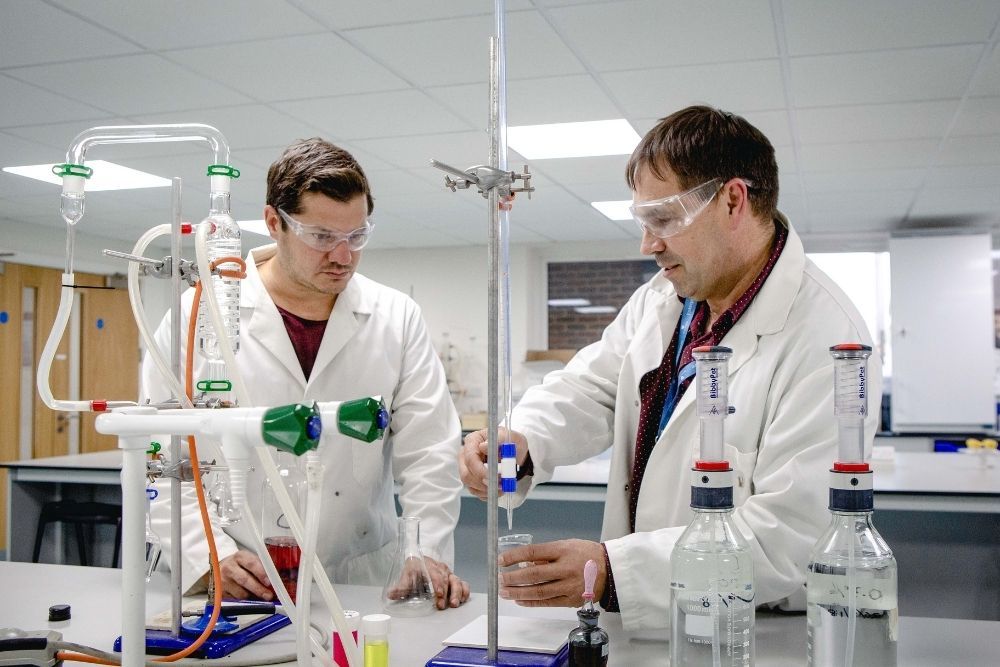
The message from the team at Plumpton College is clear; if you’ve got ideas you need researching, then they’re open to talk. Year on year they are attracting a full roster of keen students from all over the world who find high class research facilities at their disposal. Whether it be vineyard management and winery techniques, or consumer trends and marketing best practices, Plumpton is an important research tool for all aspects of the UK wine trade. It’s just down to us to get in touch.
For more information about the research opportunities at Plumpton College as either a student or business, please contact Rachel Davey on rachel@racheldaveypr.co.uk
Mike Turner works as a wine writer, educator, presenter, and judge through his company Please Bring Me My Wine. He also runs wine events and e-commerce business, Feel Good Grapes from his base in the East Midlands.
Photos from Plumpton College media library, photographer Christopher Lanaway.
